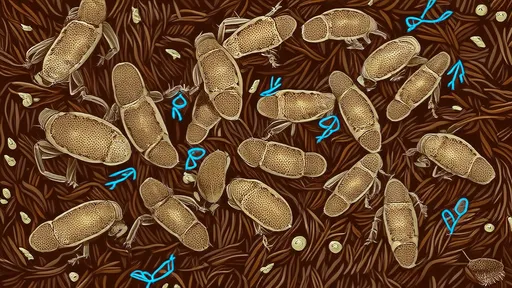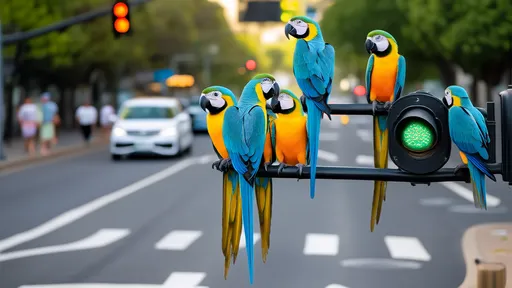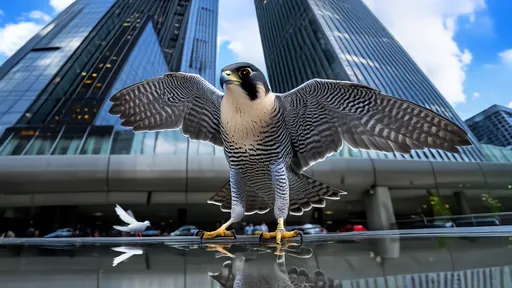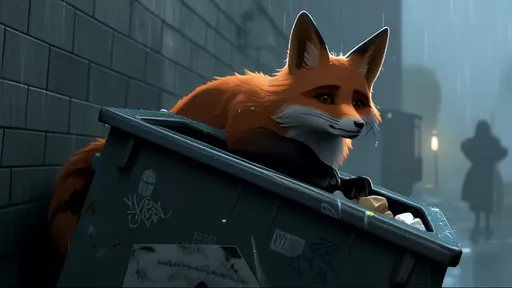In the heart of London, a peculiar phenomenon has been catching the attention of both residents and scientists alike. Urban foxes, long considered clever scavengers, have reportedly developed an unexpected skill: opening electronic litter bins. These bins, designed to be tamper-proof and secure, have become an unlikely playground for the city's fox population, showcasing their remarkable adaptability and intelligence.
The electronic bins, installed across London as part of a smart city initiative, are equipped with sensors and locking mechanisms to prevent animals and unauthorized access. However, the foxes seem to have cracked the code—literally. Witnesses have reported seeing the animals standing on their hind legs, pressing the bin's buttons with their paws, and waiting for the lid to unlock before helping themselves to the contents inside. This behavior has left many astonished at the foxes' problem-solving abilities.
Experts believe this is a clear example of animal intelligence and adaptability in urban environments. Dr. Sarah Ellis, a wildlife biologist, explains that foxes are highly observant creatures. Over time, they learn to associate human actions with outcomes—such as pressing a button to open a bin. "These foxes have likely watched people use the bins repeatedly and figured out the mechanism through trial and error," she says. This isn't the first time urban foxes have demonstrated surprising skills, but their ability to manipulate electronic devices marks a new level of ingenuity.
The implications of this behavior extend beyond mere curiosity. Local authorities are now faced with the challenge of securing waste management systems against these clever intruders. Some councils have already begun retrofitting bins with more complex locking mechanisms or adjusting the sensitivity of the sensors to prevent foxes from triggering them. However, as one council member noted, "It's a constant game of cat and mouse—or rather, fox and bin."
For Londoners, the foxes' antics have become a source of both amusement and frustration. While some admire the animals' resourcefulness, others are less thrilled about finding their neighborhood bins ransacked overnight. Social media has been flooded with videos of the foxes in action, with many users marveling at their dexterity. One viral clip shows a fox patiently pressing a bin's button multiple times until it finally unlocks, a testament to their persistence.
Beyond the immediate practical concerns, this phenomenon raises broader questions about the intersection of wildlife and urban technology. As cities become smarter and more automated, how will animals adapt? The foxes of London may be among the first to navigate this evolving landscape, but they likely won't be the last. Researchers suggest that other intelligent species, such as raccoons or crows, could exhibit similar behaviors in the future.
For now, the electronic bins remain a battleground of wits between humans and foxes. Whether through smarter designs or simply accepting the foxes' presence as part of urban life, London's relationship with its wildlife continues to evolve. One thing is certain: these clever creatures have proven that even the most advanced technology is no match for nature's ingenuity.

By /Aug 12, 2025

By /Aug 12, 2025

By /Aug 12, 2025

By /Aug 12, 2025

By /Aug 12, 2025

By /Aug 12, 2025

By /Aug 12, 2025

By /Aug 12, 2025

By /Aug 12, 2025

By /Aug 12, 2025

By /Aug 12, 2025

By /Aug 12, 2025

By /Aug 12, 2025

By /Aug 12, 2025

By /Aug 12, 2025

By /Aug 12, 2025

By /Aug 12, 2025

By /Aug 12, 2025

By /Aug 12, 2025

By /Aug 12, 2025